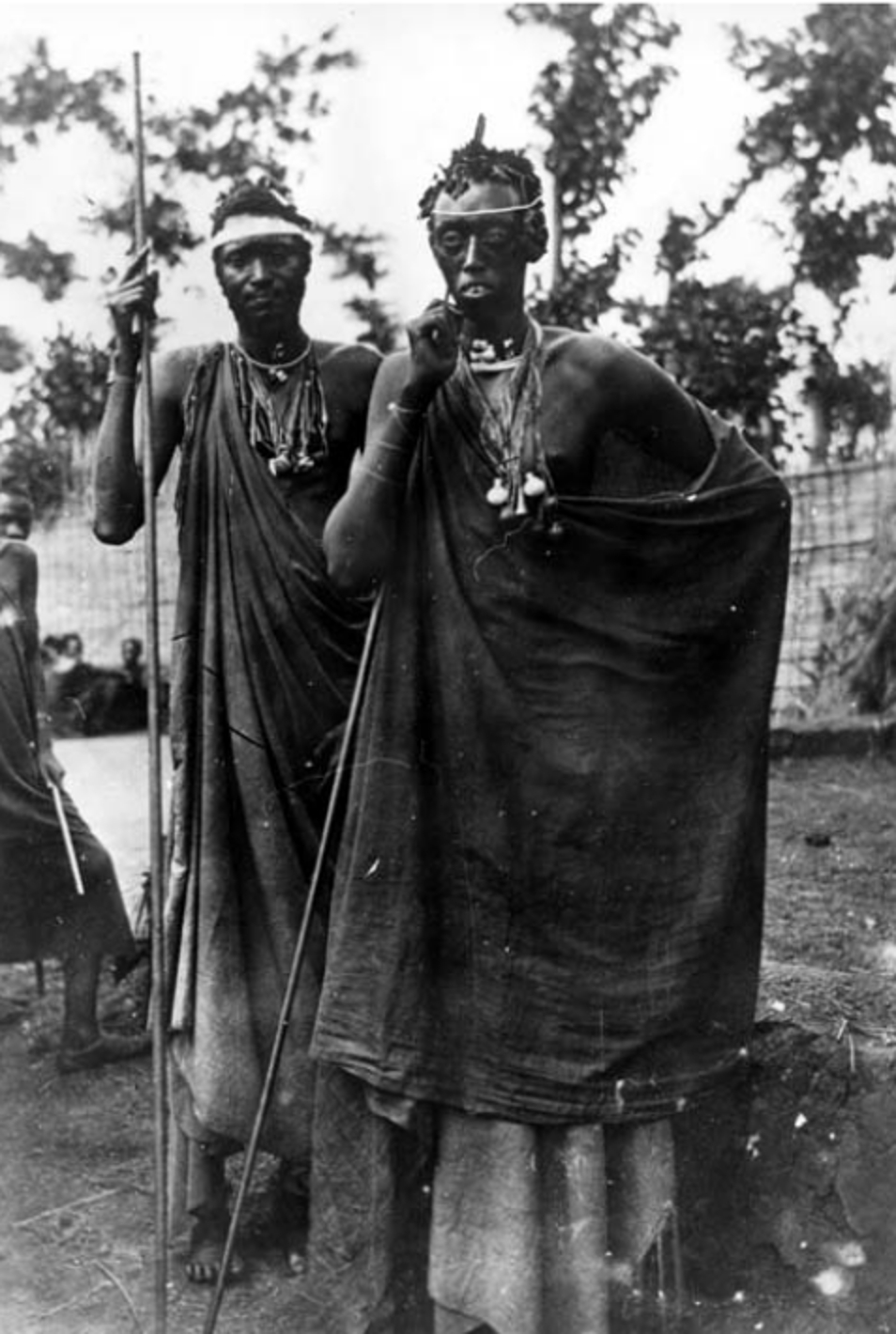On the difficulties of being a racist: On the chair of the European
A young
African woman sits on a chair as it was mostly used by European. I do
not know the exact date of the photograph, neither where it was
taken. The surrounding suggests a German settlement or governmental compound. The young women
seems to be very relaxed and all of her posture, her expression
seems to say: This is a place I belong to, I have to right to be at,
and this is not the first and will be not the last time I am sitting
here. There is some intimacy between the photographer and his model
that is in stark contrast to the majority of other photographs of
African taken by Germans. There nothing of the fear or
incomprehension that Africans often express when they are portrayed
by German photographers.
It is
not difficult to grasp the relationship between the photographer and
his model. The woman belongs to the household of the photographer,
either being in his service or his mistress, probably both. Such
relationships between German colonizers and African women were very
common during German colonial rule in Eastern Africa.
Historians
and scholars of post-colonial studies stress that these relationships
were part of and based on colonial power structures. A crucial
element of colonial power structures was the easy access of the
colonizers to the services of African women. Notably in the first
years of colonial rule, the colonial society was an exclusive club of
white males. The disparity of income, wealth and resources made
available by the colonial state between Germans and Africans allowed
German colonizers to establish large households with servants, cooks
and guards. For many Germans coming from middle-class or
impoverished aristocrats from East Prussia this was rather uncommon
to their previous possibilities. The men, being often in the prime of
their lives, had their desires and needs.
There
was, however, this tiny little problem of racist prejudices. Most
Germans who went to East Africa shared such prejudices, there is no
doubt about this. Assumptions about the hierarchies of races belonged
to the core of colonial ideologies. From the standpoint of the pure
doctrine of racism, relationships between Germans and Africans were
unthinkable. Nevertheless, from the perspective of a militaristic
culture of colonialism, these relationships could be interpreted as
the natural right of the conquerors: as long as this relationship
remained within the framework of the exploitation of the conquered.
Women were simply part of the spoils of colonial wars.
Intimacy,
therefore, was the greatest danger to racial and colonial ideologies.
Intimacy undermined the degradation of African women to sexually
exploited objects. And it transgressed the borders between the
colonizer and the colonized. There is a German account that describes
this very well. A German officer warned against the danger of
“bibis”, the Swahili term for a woman. Too much intimacy
endangered the supremacy of the colonizers. African women would be
enabled to look beyond the veil of the sacrosanct nimbus of the
Germans. This would result in a loss of his authority. One can,
perhaps, speculate about what Germans tried to hide before the eyes
of Africans: their rampant alcoholism, their bad tempers and
depressions resulting from the unaccustomed climate, their lack of
understanding Swahili, the official language of the colony? Who
knows?
Another
enemy was visibility. At the frontiers of the colonial society,
relationships between Germans and African women were not well hidden.
A nice story is a court case against the District officer at Mwanza
(Lake Victoria), Theodor Gunzert. The German official lived in barely
hidden relationship with two African women. This annoyed a German
settler woman, who became the “victim” of a daily parade of these
two women. Gunzert endowed them with the last European fashion, and
the women paraded with their outfit along the settler's woman house.
The German woman accused Gunzert of violating the racial order.
Gunzert, however, was one of the best colonial officials of the
colony. His politics were regarded as a success story in Dar es
Salaam as well as in Berlin. The court dismissed the case and, for
the sake of peace in the colony, deported the woman back to Germany.
Nevertheless,
relationships between Germans and African women were subject to much
harder restrictions in Dar es Salaam, notably in the later years,
when more and more German women came to the colony and the colonial
society was transformed from a society of male “pioneers” to more
bourgeois patterns. In Germany,these relationships were more hidden.
In 1912, the German colonial secretary prohibited marriages between
Germans and women from the colonies.



Comments
Post a Comment